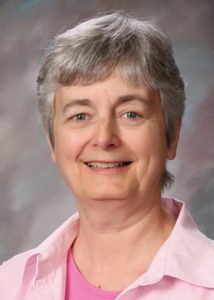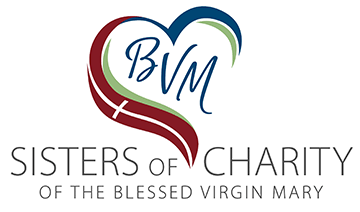Assisting Homeless College Students Rooted in Vincentian Spirituality
by Patricia M. Bombard, BVM
Fall 2019, issue of Salt
In the mid-17th century, when St. Vincent de Paul, the Catholic Church’s “Apostle of Charity,” walked the streets of Paris, it is said that as much as 10 percent of the Paris population of 400,000 were homeless beggars.
Vincent’s response to what he witnessed arose from his spirituality, says Vincentian priest Hugh O’Donnell, CM. He describes Vincent as following “a way” that began with finding the will of God in the reality around him, and then moving into action.
Following in Vincent’s footsteps, members of several Vincentian organizations in Chicago recently found themselves surprised by a present-day reality: homeless college students. Inspired by Vincent’s legacy, they committed themselves to take action. Among them was Chuck Levesque, executive director of Depaul USA, an affiliate of Depaul International, a Vincentian organization working to eliminate homelessness in countries around the world.
In 2014, Chuck began collaborating with Shenay Bridges in DePaul University’s student affairs division to identify students in need.
Based on her contacts, Shenay estimated there were about 50 homeless students at DePaul each academic quarter, falling into two groups—the first being students living in their cars or couch surfing; the second being students who lost their housing (including residence halls) because they fell behind academically or became delinquent in paying tuition and fees.
Chuck and his staff initially responded with a plan to create a “home host” program for students, relying on university faculty and staff to act as hosts. They named it the Dax Program. Based on the experience of one student placed in an apartment offered by a member of St. Vincent’s Parish, they determined a better solution lay in acquiring a home students can share while completing their degree, paying only a small fee, and working to help care for the house. That plan proved so successful in its first year that Depaul USA recently acquired a second house.
Beginning in the spring of 2015, I helped coordinate a group of DePaul faculty and staff who met twice monthly with Depaul USA staff for several years. We learned more about the needs of housing insecure students by hearing from students and studying the systemic nature of the issue.
- 44 students served
- 15 students received housing
- 14 students graduated
- 10 students currently being housed
Nationwide, it is estimated that tens of thousands of college students are homeless.
We learned that to be successful at completing college, students need not just financial aid, but nearly a dozen other resources often lacking for first-generation or under-resourced students: knowledge of higher education culture and expectations, social support networks, mentors, emotional intelligence, physical health, and spiritual grounding.
We also learned that the stigma of being homeless makes it difficult for students to ask for help. On the other hand, we learned that students, though clearly struggling, have within them a tremendous resilience and a passion to earn their degree.

“If I don’t get this degree, I’ve got nothing,” says Cassandra Murff during our first conversation. A complex family situation left Cassandra homeless in her junior year at a Chicago high school. A faculty mentor there encouraged her to attend DePaul because as a resident student “ I would have a place to live.”
Cassandra discovered, however, that her financial aid package through DePaul, a small scholarship from the Chicago Coalition for the Homeless, and a job at Walgreens did not provide enough money to cover tuition, housing, books, and food. At first hesitant to reach out to others (she refused a faculty member who offered her a coat when she noticed Cassandra didn’t have one), Cassandra eventually became an outspoken advocate on behalf of students like herself.
“One of the things I always tell people is that I had to learn to become comfortable being uncomfortable,” Cassandra says in an interview for a DePaul press release. “I had to force myself to actually speak up about these issues because, as embarrassing as it was for me, I knew the end goal was for me to graduate college and obtain a degree, so that I could go on and get a good job.”
Cassandra did graduate in June 2018, the first in her family to do so, earning a bachelor’s degree in English. She was hired by the company where she had interned. Best of all, she was able to afford her own apartment.
Just as in Vincent’s time, seeing the reality of homelessness is leading to action, to help DePaul students realize their dreams.

About the author: Patricia M. Bombard, BVM
serves as the director of Vincent on Leadership:
The Hay Project at DePaul University.
Related:
Nowhere to go: Young people cope with homelessness in the US
Global Sisters Report
No home, food, or laundry soap: BVM Patricia M. Bombard talks about homelessness among DePaul University College students.

